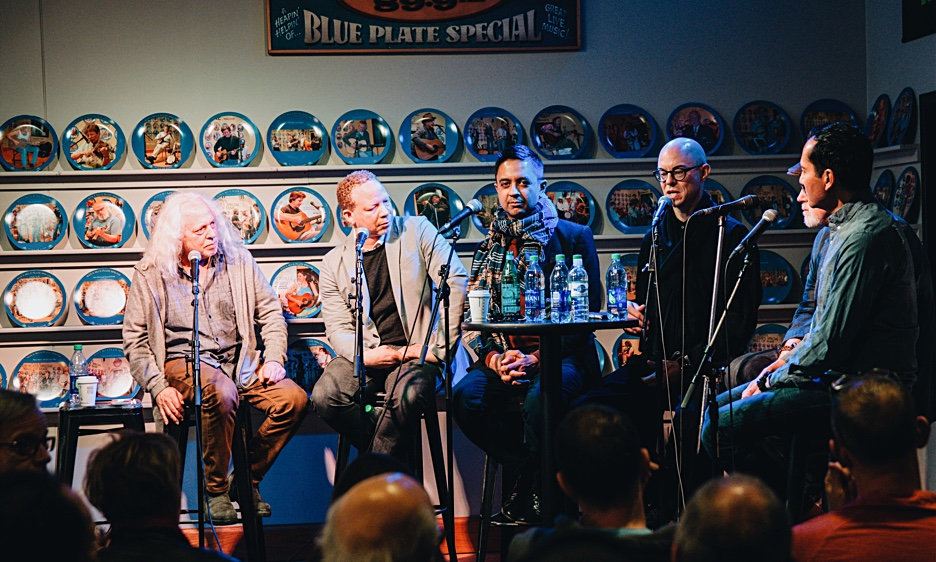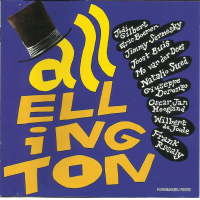"
data-original-title="" title="">Manfred Eicher the label has maintained unwavering standards of excellence, characterized by an unmistakable visual identity and rigorous production values. In addition to some 20 concerts featuring ECM artists, the 2019 Big Ears Festival (full review here) also hosted an "ECM @ 50" panel discussion. Moderated by critic and author 

Nate Chinen
author
David Torn
guitar, electricb.1953

Vijay Iyer
pianob.1971

Craig Taborn
pianob.1970

Nik Bärtsch
pianob.1971
After noting that he had extended invitations to musicians from the classical New Edition side of the label who were at the festival (e.g. violist

Kim Kashkashian
violab.1952

Chick Corea
piano1941 - 2021

Keith Jarrett
pianob.1945
David Torn mentioned a trip to a college radio station's music library, where he encountered reed player

Bennie Maupin
woodwindsb.1940

Jan Garbarek
saxophoneb.1947

Terje Rypdal
guitarb.1947
The label's albums are sometimes described as "cinematic," which also brings up the concept of auteurism (with the producer's role being similar to the role of film director in defining the vision of the project). Iyer said that Manfred Eicher often speaks of "dramaturgy:" each album representing a musical narrative. B?rtsch spoke about the sense of a clear journey ECM albums have. In his case, even a long track tells a story in itself, as well as contributing to the album's story. A follow up question dealt with Eicher as an active producer. Steve Lake said that sessions were all different, but something special always happened. In the current streaming environment he now questions the importance of the album format. Torn said that an album is different from a live performance, but they are both important. The album is an art form in itself.
The next topic was the diversity of ECM's roster. Iyer said that before coming to ECM he felt like the token American on his previous European label. ECM gave him the opportunity to work with artists like trumpeter

Wadada Leo Smith
trumpetb.1941
ECM's recent move to the streaming service Spotify has implications. B?rtsch commented that a playlist can have dramaturgical meaning. Iyer pointed out that the object (CDs and LPs) still exists: hopefully the formats can coexist. Lake said that ECM was using playlists internally, plus the label was being bootlegged. So the move made sense, but they had mixed feelings about it. Taborn is concerned about the technical limitations of streaming and MP3s. Some listeners nowadays do not even own quality playback equipment.
The big question of the day: what does the label's 50th anniversary mean to its artists? Iyer said that they must each figure out what's next for themselves. Lake pointed out that ECM's influence has spread to other labels (e.g. Nonesuch Records). The story of Big Ears founder Ashley Capps' meeting with Manfred Eicher to discuss the celebration was told again. Supposedly Eicher wanted to discuss future releases rather than talk about the past. But Torn disbelieved the interpretation that the anniversary means nothing to Eicher. How could 50 years not mean anything?
The final question was about the sympathetic resonance of Big Ears hosting the celebration. Torn said if feels right: he had been wanting to perform at the festival for a long time. It caters to audiences open to things they have not heard before. B?rtsch expressed interest in finding out more about how the festival works. Lake commented that disparate artists like free-jazz saxophonist

Evan Parker
saxophone, sopranob.1944

Rhiannon Giddens
vocalsPhoto Credit: Christian Stewart
Tags
Record Label Profiles
Mark Sullivan
Manfred Eicher
Nate Chinen
David Torn
Vijay Iyer
Craig Taborn
Nik Bartsch
Steve Lake
Kim Kashkashian
Chick Corea
Keith Jarrett
BENNIE MAUPIN
Jan Garbarek
Terje Rypdal
Wadada Leo Smith
evan parker
Rhiannon Giddens
Comments
PREVIOUS / NEXT
Support All About Jazz
 All About Jazz has been a pillar of jazz since 1995, championing it as an art form and, more importantly, supporting the musicians who make it. Our enduring commitment has made "AAJ" one of the most culturally important websites of its kind, read by hundreds of thousands of fans, musicians and industry figures every month.
All About Jazz has been a pillar of jazz since 1995, championing it as an art form and, more importantly, supporting the musicians who make it. Our enduring commitment has made "AAJ" one of the most culturally important websites of its kind, read by hundreds of thousands of fans, musicians and industry figures every month.









 Buy Now
Buy Now



















